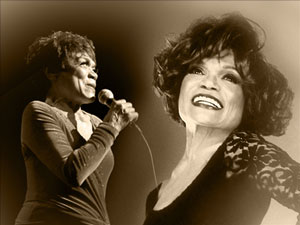FCNNEWSSOURCE

With the death of entertainer Eartha Kitt came descriptions of her laced with words like of sultry, feline, animalistic, exotic and other adjectives that focused on her physical attributes and her ability to attract men. There were accounts of how a woman rejected by her mother and born out of a rape in the south managed to attain fame and fortune.
Her death also revived how she shook up American society, not with a slit dress, but with bold words about the Vietnam War spoken during a 1960s White House luncheon with Lady Bird Johnson, the president’s wife. Ms. Kitt told the group, “You send the best of this country off to be shot and maimed. They rebel in the street. They don’t want to go to school because they’re going to be snatched off from their mothers to be shot in Vietnam.”
Speaking the truth cost the girl from South Carolina, she was blacklisted in America and forced to work outside of the United States. She was also investigated by the FBI and CIA and it would not be unreasonable to think that there were attempts to besmirch her name and character.
“ ‘The thing that hurts, that became anger, was when I realized that if you tell the truth–in a country that says you’re entitled to tell the truth–you get your face slapped and you get put out of work,’ Ms. Kitt told a magazine two decades later,” reported the Associated Press.
But Ms. Kitt was not the only Black entertainer targeted by the FBI or mentioned, or cross-referenced in files related to federal investigations. A quick review of the index of the FBI Electronic Reading Room turned up names like opera singer Marion Anderson, author James Baldwin, musician Cab Calloway, actress Dorothy Dandridge, entertainer Sammy Davis, Jr., blues great Billie Holiday and jazz musicians Charles Mingus and Thelonious Monk and the late rapper Tupac Shakur.
It is stunning that in a society where freedom of speech and political expression are often bandied about, the ugly underside, and often hidden truth, of American history is that speaking the truth to power comes with a heavy price. For entertainers, there is broad acceptance of action, activity, thought and advocacy that does not challenge or even point out wrongs in the society. There is plenty of tolerance for the lewd and the crude, but urging a nation to correct an errant course is hardly, if ever, welcomed.












